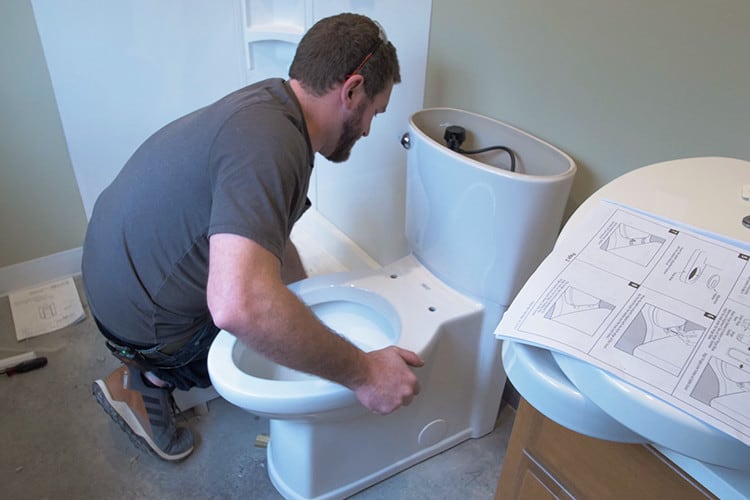Can you tell the difference between the different types of plungers? Do you treat your toilet like a trash can? Do you avoid scheduling regular maintenance for your home’s pipes? These questions are essential to consider when improving your plumbing habits at home. In this blog post, we’ll break down how to change your habits to take better care of your home.
Tools
A homeowner is only as good as their tools, or so they say. It’s important to take time to learn more about the tools every homeowner should have stocked in the new year.
Did you know that there are different types of plungers? Let’s break down the three most common types:
Cup Plunger – This is your standard plunger; it’s typically on a wooden stick with a soft (usually red) cup. This flat plunger works best on other flat surfaces, such as your bathtub, shower, or sink. It’s a common misconception that this will work best on a toilet.
Flange Plunger – This plunger also has a soft cup but has an extra flap continuing out. This design is best suited for your toilet. It makes a stronger suction on your toilet drain, making it easier to unclog.
Accordion Plunger – This hard plastic plunger is a bit more challenging to use than the previous two. It can use a lot of force to work but does wonder on stubborn toilet clogs. Unlike the other plungers, it is not made of a soft material but hard plastic, which can leave marks and scratches on your toilet or sink.
While plungers are a necessity of any bathroom, they are not the only integral tool every homeowner should have. Should you ever have a plumbing emergency, these tools should hold you over until a professional plumber can arrive:
- Duct tape
- A gallon bucket
- Pliers
- A standard wrench
- Drain guards
Down The Drain
Many items claim they are “safe” to go down the drain or are “flushable,” but that might not be the case. Here are everyday household objects that you need to stop flushing down the drain:
Wipes. A lot of bathroom wipes are advertised as “flushable.” What does that mean? It means, yes, technically, you can flush them down the toilet. But, wipes don’t dissolve in water. This means if you flush wipes regularly, they can build up and cause a clog in your pipes and sewer system.
Oil. From grease in the kitchen to scented oil in your bath, sending oil down your home’s drains is always a bad idea. Oil cools at room temperature, leaving it to coat and gum up your home’s pipes. If your pipe has too much oil caught inside, it could lead to a water burst or leak.
Kitty Litter. Like wipes, many kitty litters advertise themselves as “flushable.” But, kitty litter clumps when mixed with moisture, like water. Large clusters of kitty litter can be disastrous for your pipes and lead to expensive repairs.
Ignoring The Problem
It may seem like the easier option to put your home’s plumbing issues or inconveniences on the back burner. You tell yourself it’s a problem that can wait until tomorrow. But, the longer you wait, the more likely something is to go wrong and even be made into a worse problem.
The best thing you can do in the face of a plumbing issue is to contact a professional right away. They will pinpoint the exact problem and suggest solutions to prevent future plumbing issues. An expert’s advice is a great asset to help save time, money, and frustration.
